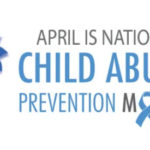By Madeleine Kates
The third annual Food As Medicine Symposium was held last month in Buffalo. Presented by the Buffalo Niagara Medical Campus (BNMC), and hosted at the University of Buffalo’s Jacobs School of Medicine and Biomedical Sciences, this year’s event continued the discussion of improving health in the community from a foundation of nutrition and education, with a focus on addressing social determinants of health.
The U.S. Department of Health and Human Services’ Healthy People 2030 initiative defines social determinants of health as the conditions in the environments where people are born, live, learn, work, play, worship, and age that affect a wide range of health, functioning, and quality-of-life outcomes and risks. These determinants fall into five categories that include economic stability, education access and quality, health care access and quality, neighborhood and built environment, and social and community context.
“More Americans are sick than are healthy, and roughly 80% of chronic disease is preventable through nutritious food and a healthy lifestyle,” says Beth Machnica, director of health and well-being at BNMC, and host of the symposium.
This year’s theme “Transformative Practices for Health” focused on the social determinants of health that impact the health status of underserved individuals in our community. Guest speaker, Angela Odoms-Young, PhD., associate professor of Nutritional Sciences at Cornell University, discussed the importance of addressing the root causes of adversity in communities in order to promote health equity, food justice, and community resilience. Many of the individuals who are affected by social and structural factors that influence dietary behaviors are those struggling with food insecurity and availability, issues related to behavioral health, trauma, and a lack of opportunity.
In addition to individual speakers, the symposium included a panel discussion whose takeaways for the attendees were to own their unique life experiences to influence positive change in the world, and to think outside the box when mobilizing community resources. One discussion in particular illustrated how to meet community members where they are, and bring resources to them in sites where they are familiar and comfortable, such as churches, barber shops, housing complexes, and community centers, rather than working outward from a single, central site.
Another topic addressed was how, in addition to education about nutrition, there needs to be access to nutritious food, along with the knowledge and tools to prepare it. There was an acknowledgement that without the basics, such as pots and pans, all the good intentions for improving nutrition will fall short of their goal.
To learn more about the speakers at BNMC’s Food As Medicine Symposium 2023, visit https://bnmc.org/health-and-wellbeing/health-and-wellbeing-food-as-medicine-2023/health-and-wellbeing-food-as-medicine-2023-speakers/.
Madeleine Kates is a graduate student in the University of Pennsylvania’s MSNS program, with undergraduate degrees in Environmental Science, Life Science, and Psychology from Niagara University. She also holds certificates in Plant-Based Nutrition from Cornell University, and CHEF Coaching from Harvard University.












